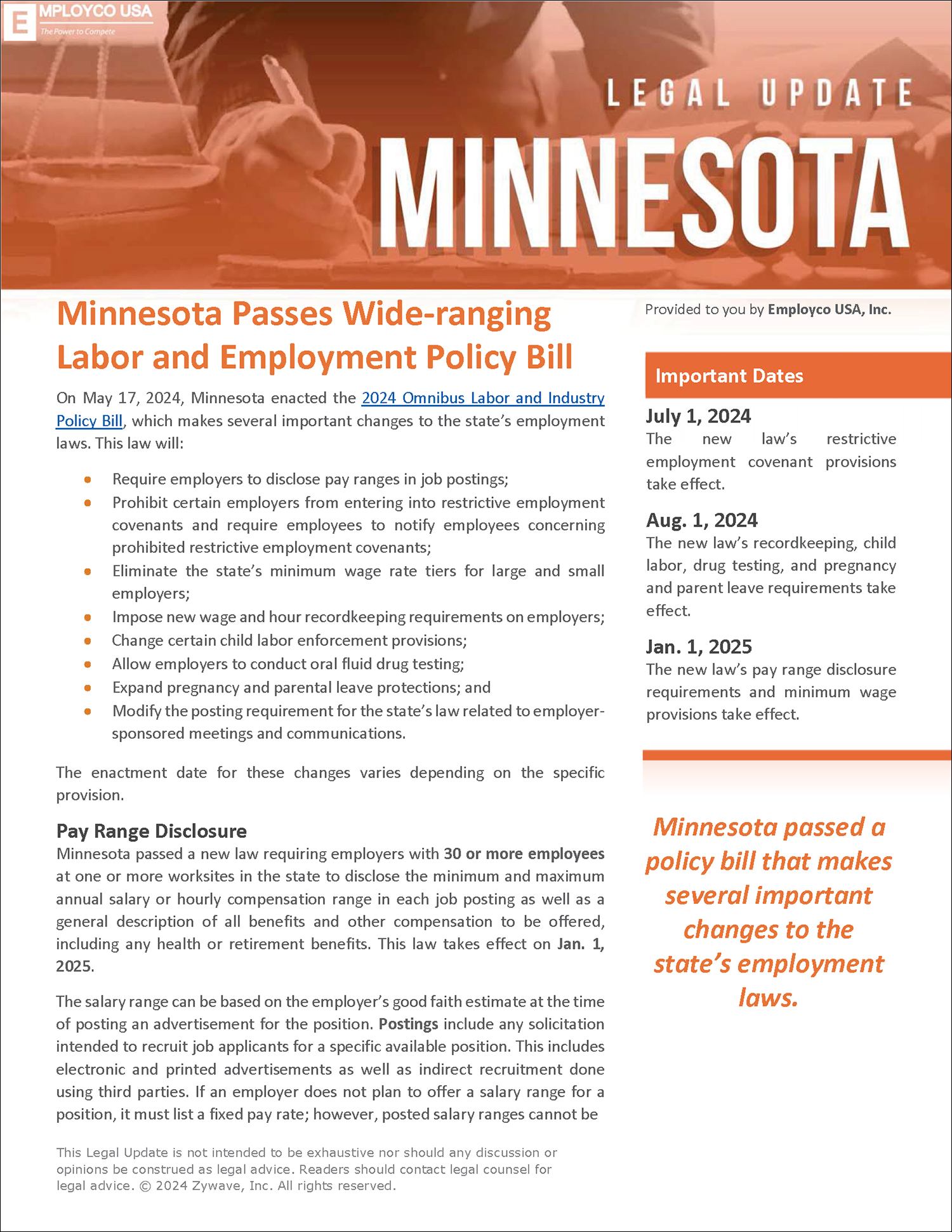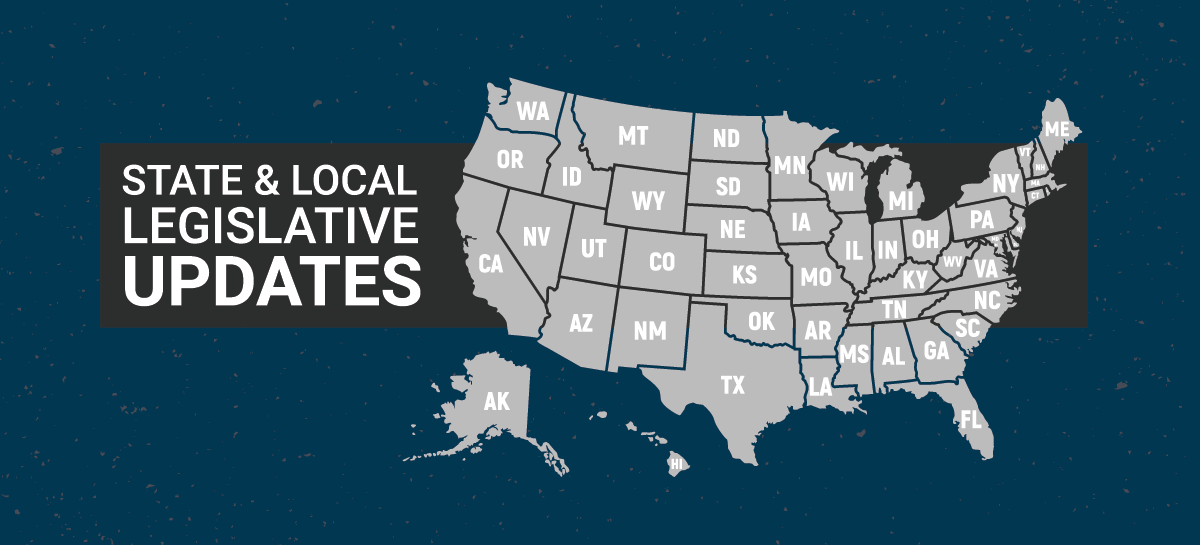
California: Preparing for the New Workplace Violence Prevention Law – On Sept. 30, 2023, California enacted the California Workplace Violence Prevention Law (WVPL), enforced by the California Division of Occupational Safety and Health (Cal/OSHA). The WVPL takes effect on July 1, 2024, and requires most employers in the state to comply with expansive workplace violence prevention requirements.
Read more: California HR Compliance Bulletin
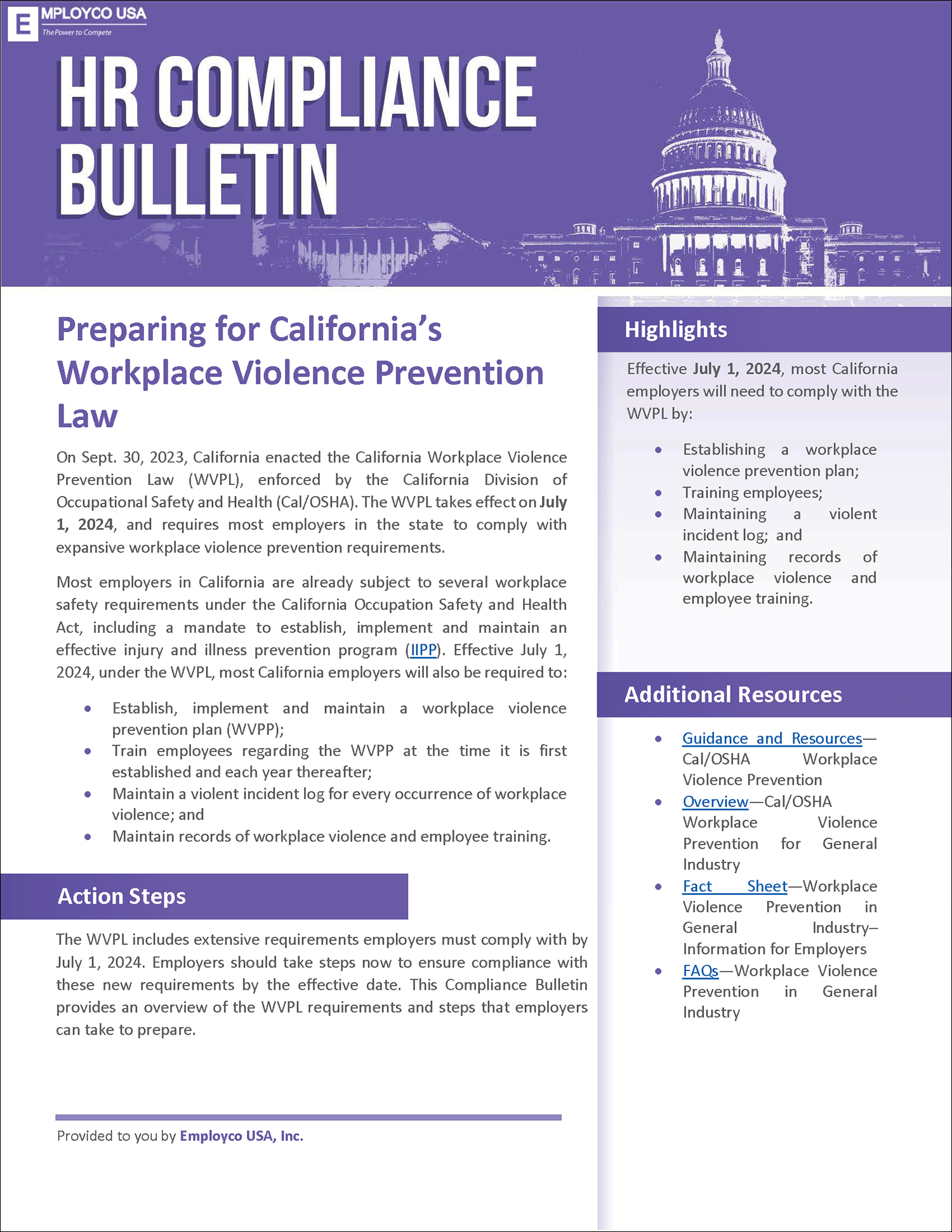
Colorado Enacts Comprehensive AI Legislation – On May 17, 2024, Colorado enacted Senate Bill (SB) 24-205, becoming the first state to pass comprehensive artificial intelligence (AI) regulation. The law, effective on February 1, 2026, will require businesses to use reasonable care to avoid discrimination when using AI for consequential decision-making (such as hiring, termination and other employment decisions).
Read more: Colorado Legal Update
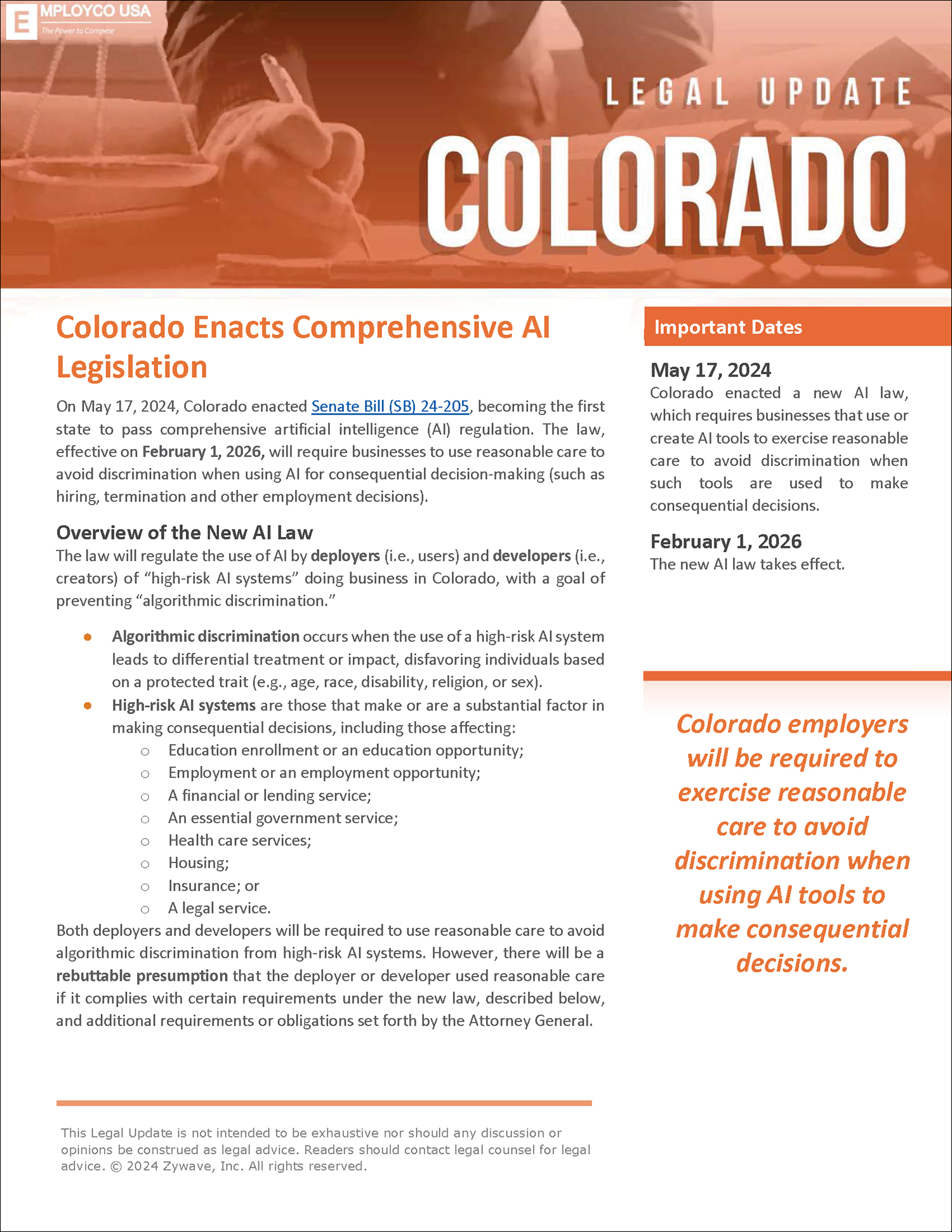
Connecticut Enacts Significant Expansion of Paid Sick Leave – Connecticut Gov. Ned Lamont has signed into law amendments to the state’s paid sick leave (PSL) law that require paid sick leave for nearly all Connecticut workers by 2027. The amendments phase in coverage in stages, applying the leave mandate to successively smaller employers year by year. The revisions also modify the PSL law in other ways, including increasing employees’ accrual rate and adding to the law’s reasons for taking leave. These additional changes take effect Jan. 1, 2025.
Read more: Connecticut Legal Update
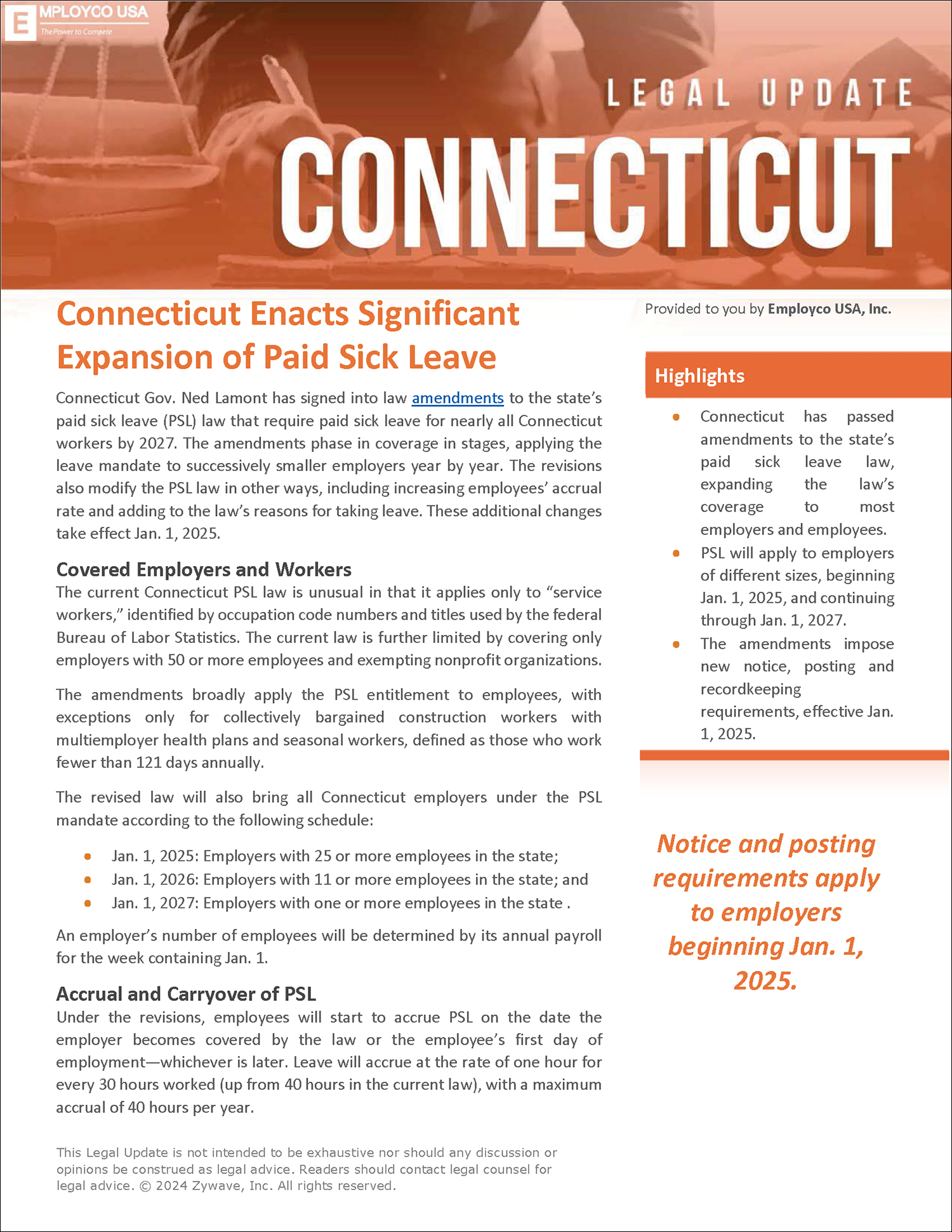
Minnesota Amends Sick Leave, Paid Family and Medical Leave – Minnesota has enacted the 2024 Transportation, Housing and Labor Omnibus Budget Bill, which makes numerous changes to the state’s earned sick and safe time (ESST) and paid leave laws. The paid leave law created a paid family and medical leave (PFML) insurance program that takes effect Jan. 1, 2026.
Read more: Minnesota Legal Update 1
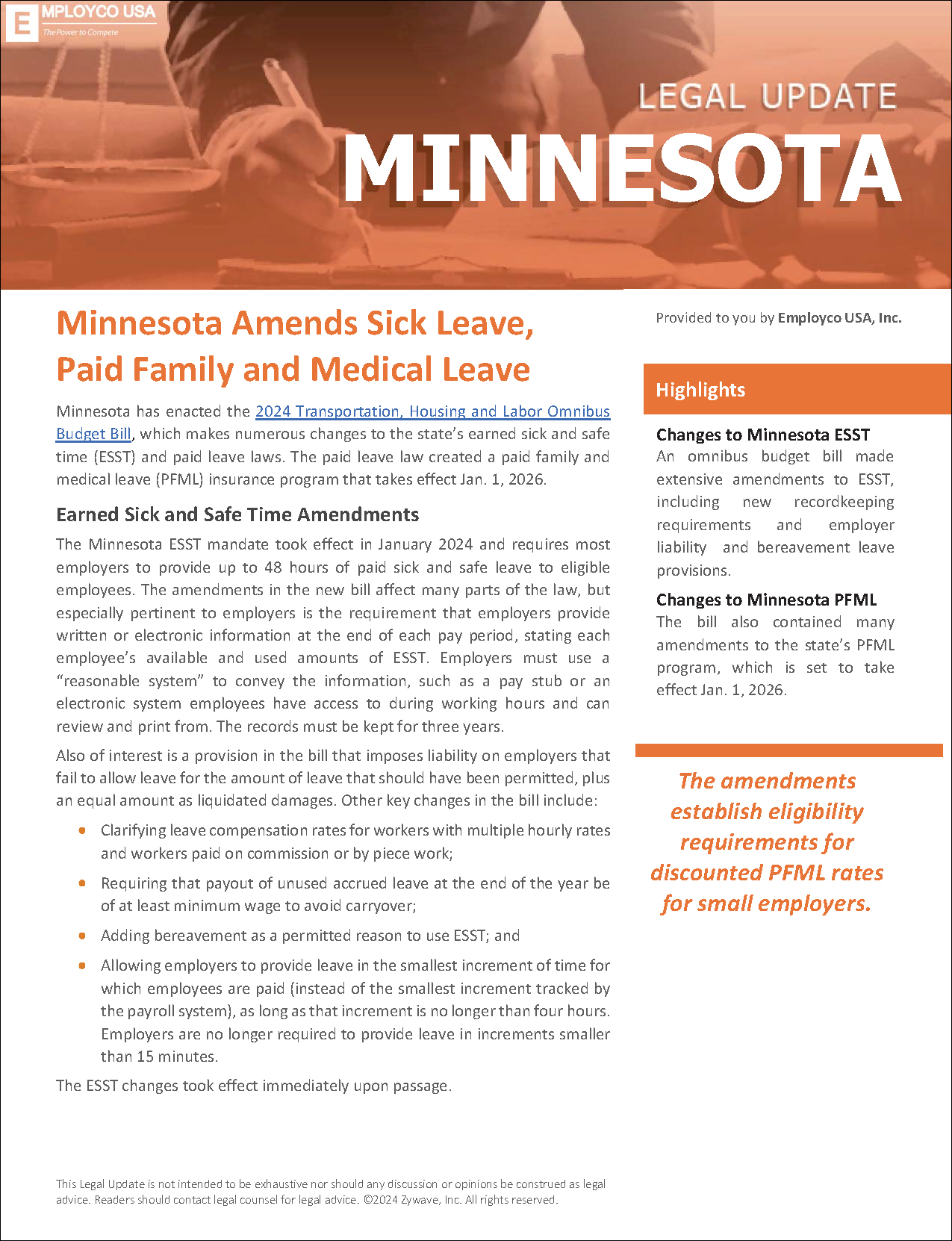
Minnesota Passes Wide-ranging Labor and Employment Policy Bill – On May 17, 2024, Minnesota enacted the 2024 Omnibus Labor and Industry Policy Bill, which makes several important changes to the state’s employment laws. This law will (1) require employers to disclose pay ranges in job postings; (2) prohibit certain employers from entering into restrictive employment covenants and require employees to notify employees concerning prohibited restrictive employment covenants; (3) eliminate the state’s minimum wage rate tiers for large and small employers; and more…
Read more: Minnesota Legal Update 2
